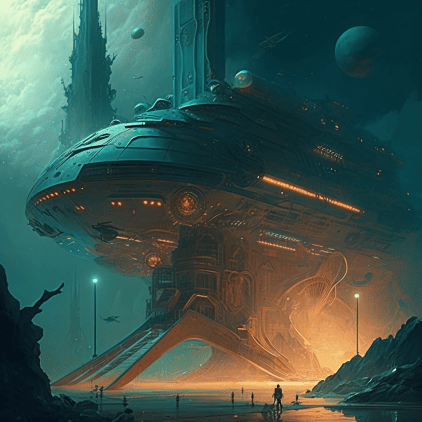Science fiction has long been a source of inspiration for science and technology. This speculative genre, which explores from the hypothetical to the outlandish, has often provided a framework for scientists and technologists to explore new concepts, technologies, and ways of thinking.
Notable examples of science fiction’s influence and inspiration on science is the development of space exploration, personal computing, the smartphone, artificial intelligence, 3D printing and virtual reality.
Many of these concepts had early beginnings in fiction:
- Space exploration: Jules Verne’s novel “From the Earth to the Moon,” which was first published in 1865.
- Personal computing: “The Machine Stops,” written by E.M. Forster in 1909.
- The smartphone: “Star Trek: The Next Generation,” which aired in 1987. In the show, characters use a device called a “PADD” (Personal Access Display Device) that serves as a portable computer as well as a communication and data storage device.
- Artificial intelligence: As well as the “The Machine Stops” mentioned previously, one of the earliest depictions of AI was in the 1920 Czech play “R.U.R.” (Rossum’s Universal Robots) by Karel Čapek.
- 3D printing: One of the earliest depictions of 3D printing in fiction is the use of “matter compilers” in the 1984 novel “The Diamond Age” by Neal Stephenson. In the book, 3D printing technology is used to create small, powerful machines. (Honorable mention goes to the replicator in original Star Trek which uses matter-energy conversation as opposed to additive manufacturing.)
- Virtual Reality: An early appearance of VR in fiction was in the 1951 short story “The Veldt” by Ray Bradbury. In it, a futuristic “nursery” enabled children to experience a lifelike reality in a virtual environment.
Many of the scientific breakthroughs we take for granted today were first imagined in science fiction stories. Science fiction will continue to play an important role in guiding our imaginations and shaping our future. However, the lag time between imagined and realized is closing. Going forward, the challenge might be for sci-fi authors to stay a step ahead.
Beyond inspiring new ideas, science fiction also helps us envision the potential consequences of our actions and decisions. By exploring hypothetical scenarios, it allows us to consider the impact of emerging technologies on society and the environment. This is particularly important in today’s rapidly evolving technological landscape, where the consequences of new technologies are often unclear. But that is for another blog post. 😊

